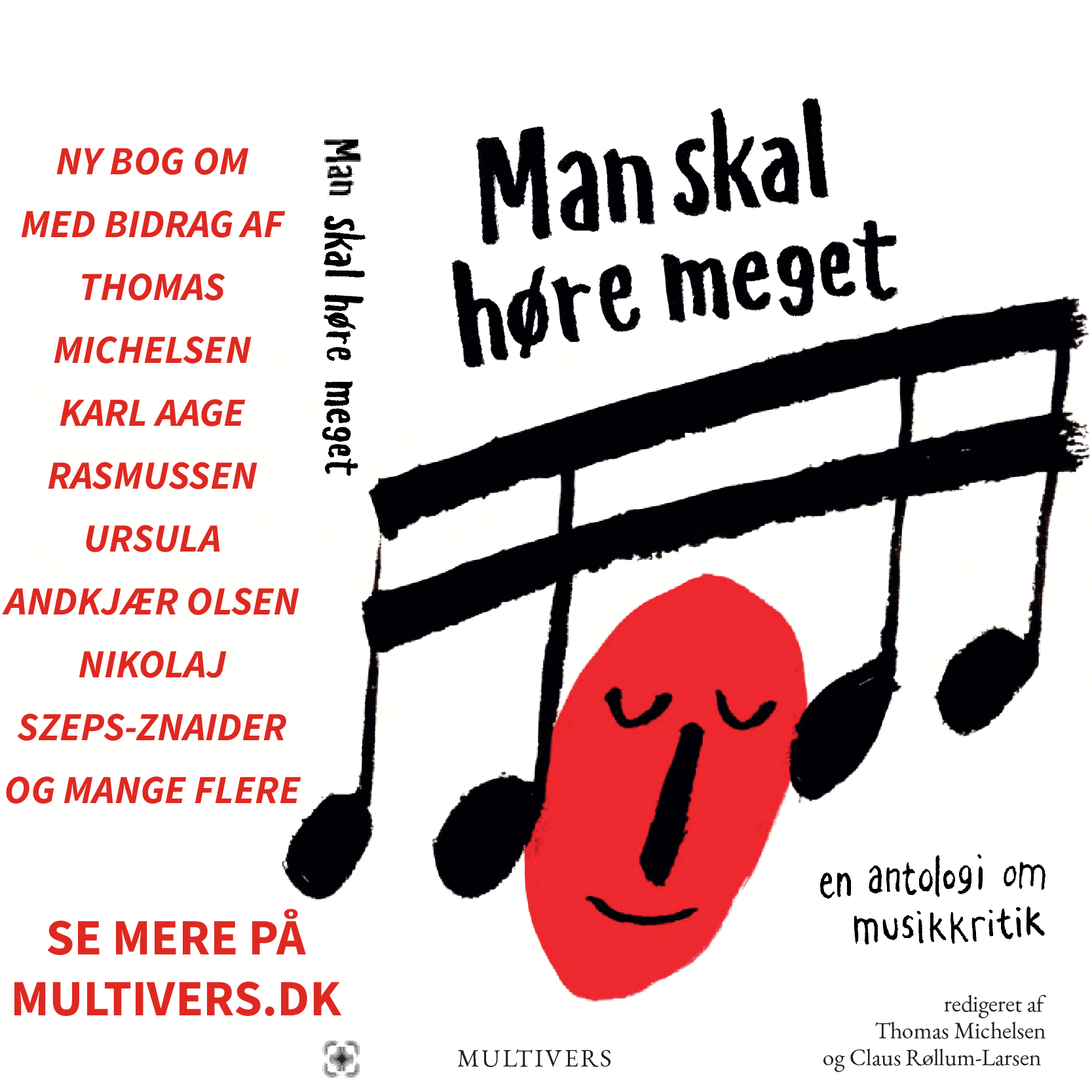.... og med Stravinskys
I bogen »Themes and Episodes« har Igor Stravinsky set tilbage pa Anton Webern i et interview kaldet »A Decade Later«. Vi bringer to uddrag
U. W.L: What are your present criticisms of the music, Mr. Stra vin sky ?
I.S.: They are mere differences of palate, mostly, and doubtless more revealing of myself than of Webern. Those molt o ritenuto, molto espressivo, and ""dying away"" phrase-endings weary me now, and there is a touch of cuteness in the vocal music which I dislike: the too-frisky piano figure at the beginning of ""Wie bin ich froh!"" for instance, and the ""Glück"" at the conclusion of the Chinese choruses, though the chinoiserie is also less subtle than in the early Li-Tai-Po song, and in fact the whole opus reminds me of a musical snuffbox; but the worst example is surely that wretched ""Bienchen"" in Gleich und Gleich (did Webern know Hugo Wolfs setting of this poem?), which should have been a large wasp with a good sting. These are minor dyslogistics, however, simple conflicts of temperament which you will understand better when I add that I also prefer unhappiness and misery to gay spirits in a great deal of German music besides Webern, since, and emphatically including, Die Meistersinger.
U.W.I.: But do you have other, more basic, criticisms, or larger criticisms of specific pieces, that you had not felt a decade ago?
I.S.: The String Quartet left me with a slight feeling of aridity when I heard it recently, but if the performance had been better, my report of the music might have been very different. Then the saxophone Quartet, when I heard it last in Paris a few seasons ago, sounded somewhat soiled by the years in the first movement, and somewhat scatty in the second. This performance also was poor, but only part of the blame can be laid to it, I think, for the hammering succession of downbeats that labor the second movement is also the fault of the notation: the note-values are too large and the measures too small. As you know, the silent or suspended beat with the notes on the anacrusis is one of the devices of this movement which Webern was to employ again in later works, though with a degree of success that is still hotly contended. Its formation near the end of the Concerto disturbs no one, but many think the use of it in the final twelve measures of the piano Variations mere Papiermusik, owing to attenuating changes of tempo. The metrical accent obtains here only if the listener is looking at a score or watching a conductor, they argue, and therefore toward the end of the passage the ear perceives the notes not in relation to silent beats but as beats themselves. Another criticism I might mention is that sometimes Webens choral harmony strikes me oddly, for exam-
ple the ""Im Dunkel"" near the end of the First Cantata, and the parallel-interval passages in the fifth movement of the Second Cantata. I think I see the interval logic and the ""purity"" of these constructions, and I am at least willing to believe that they derive from a ""teleological"" conception (in practice, a mania for total identification) of the form. But it is harmony, after all, even when described as a ""refracted expression of the horizontal interval structure"" (a commentator's concettism), and in the case of the ""Im Dunkel"" it is very banal harmony indeed.
U.W.I.: As you have noted some of your criticism, Mr. Stravinsky, would you also evaluate the high points? I.S.: After the Five Movements and the Six Pieces, the next peaks come a decade later, with the Trakl songs, the Canons, the Volkstexte, the clarinet and guitar songs. But for me, the Trio, the Symphony, and the orchestra Variations are Webens greatest achievements.
U.W.I.: Has your estimation of Webern's position changed appreciably in the last decade, Mr. Stravinsky?
I.S.: Not mine, but certainly that of many others. ""With it"" composers have now turned away, or developed away, from his influence, though their music often continues to be a catalogue raisonné of derivations from his. But all of us owe something to him, if not in rhythmic vocabulary, then in our sensibility to musical time, for I think Webern has raised everyone's sense of refinement in this regard (well, nearly everyone's). Whether there are ""great,"" or only new and very individual feelings in his music is a question I can answer only for myself, but for me Webern has a power to move, and no moment in contemporary music has haunted me more than the Coda of the Symphony. In spite of what I said at the beginning of our talk, then, if you are ""seeking strange gods"" you might do worse than to continue to revere St. Anton.
Hollywood, November 5, 1965

